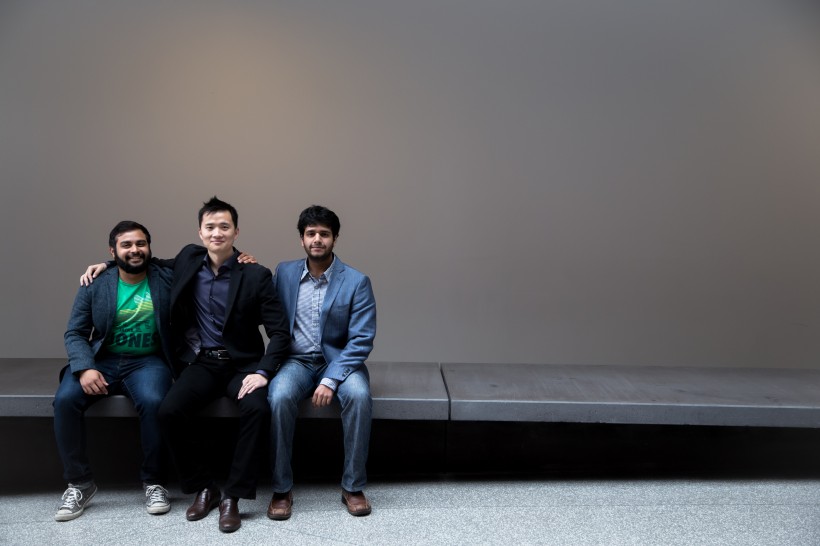Kitchener-based Medella Health has closed a seed funding round of $1.4 million to help roll out its smart contact lenses that help to test glucose levels.
The company, which is a member of the Velocity Garage incubator, said in a press release Thursday it received funding from 1517 Fund, Fifty Years Fund, Garage Capital, BDC Capital and other investors.
Medella Health has developed smart contact lenses that continuously monitor glucose levels and transmit the information to a mobile device so patients can manage their diet, exercise and habits. It’s a preventive model of health care that helps the user take early action to avoid the adverse effects of diabetes.
“There’s never been a better time to do this – our healthcare system is ripe for disruption, where the industry leaders and key opinion leaders are advocating to shift from a reactive model of care to a preventative model of care,” said Co-founder and CEO Harry Gandhi in a statement.
Medella Health will use the capital to focus on scaling its technology and to partner with micro-fabrication companies, contact lens manufacturers and healthcare providers.
The smart contact lens works by integrating a small sensor, chip, and micro-antenna into the structure of the contact lens. Unlike other lenses in development, Medella Health’s proprietary sensor lasts up to a month. This extended lifespan makes calibration simple and also significantly reduces the cost of continuous glucose monitoring.
Medella Health began in 2013 at the University of Waterloo with three co-founders -- nanotechnologist Maarij Baig, biochemist Huayi Gao and Gandhi. It has now grown to a team of 15 comprising experts in nanotechnology, health IT, micro-electronics and micro-fabrication.
“I’ve seen the Medella Health team grow since their early days in the labs,” said Lyndon Jones, Director of the Centre for Contact Lens Research. “Not only do they have the rigor and resilience to solve the hard problems facing this industry, but they weave together the balance between visionary purpose and practical implementation.”
Gandhi believes that Kitchener-Waterloo is the ideal location for developing their specific technology due to the lab spaces they are able to work from. There’s the Waterloo Institute for Nanotechnology, the Centre for Intelligent Antenna and Radio Systems, which is the biggest antenna lab in Canada, and the Center for Contact Lens Research, which is the largest of its kind in the world.
The team is also a part of the Velocity Foundry incubator, and Gandhi, who founded the Velocity Science acceleration program, says the Waterloo community has helped their development along tremendously.










